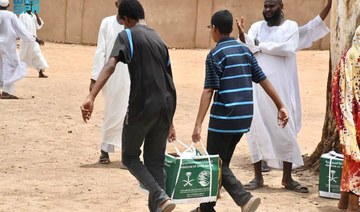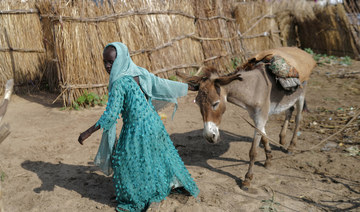WAD MADANI, Sudan: Desperate to check on her elderly mother amid the chaos of Sudan’s war, Amal Hassan left her family home in the capital Khartoum on May 30.
She has yet to return.
Her husband and three children in Omdurman — part of greater Khartoum — are among the hundreds of Sudanese families desperate for news of loved ones who have disappeared.
At least 3,900 people have been killed since war broke out in mid-April between the army and the paramilitary Rapid Support Forces (RSF).
Hundreds more have simply vanished, leaving their families anxiously guessing whether they have died in the fighting or been abducted by combatants.
Many anxious families have turned to social media, desperate for news of missing relatives, in many cases girls and women, in the war that has seen repeated reports of sexual violence.
The online support project Mafqoud (Missing) lists the names of the disappeared together with their photos and a family member’s phone number.
Just one of the many listed is Saba Baloula Mokhtar, a 17-year-old girl who was last seen in Omdurman on May 18.
Human rights groups and Sudan-based activists say many have been taken by the RSF.
One woman who made it back to her family in north Khartoum, Heba Ebeid, said paramilitaries held her for three months, forcing her and other women and girls to cook for them.
Some of the missing are feared to have died in gunbattles, artillery and air strikes in the war between army chief Abdel Fattah Al-Burhan and RSF commander Mohamed Hamdan Daglo.
Others have been kidnapped, sometimes for ransom of up to 30 million Sudanese pounds (around $54,545), according to a report by the Strategic Initiative for Women in the Horn of Africa (SIHA).
A relatively lucky few have been freed, sometimes left by the side of the road after days, weeks or months of captivity.
The Sudanese Association for Victims of Forced Disappearance said it had filed “reports of 430 disappearances during the war.”
It has given the names of missing men, women and children to police stations in Wad Madani, a town 200 kilometers (125 miles) south of Khartoum where many of the displaced have fled.
“According to survivors, these abductions are the work of the RSF,” Othman Al-Basri, a lawyer with the association, told AFP.
SIHA has also collected testimonies from women who say they were kidnapped by paramilitaries and forced to cook for them or wash their clothes.
“We have so far counted 31 missing women and girls,” the group told AFP in a written statement.
“But we think the real number is much, much higher. Families avoid reporting cases of missing women, for fear of stigma.”
In the back of everyone’s mind is the same fear: that the disappeared have been subjected to the sexual violence that has been rampant in both the current and past Sudanese conflicts.
Since April 15, the governmental Combatting Violence against Women and Children Unit has recorded 108 sexual assaults in Khartoum and the western region of Darfur.
The unit stresses that the true number, like overall casualty figures, may be far higher, as their count includes only those who have received treatment and chosen to report the assaults.
Many more are thought to be suffering at home in silence.
Most Sudanese hospitals are out of service, and police have mostly disappeared from the streets as their stations have been attacked and looted by the RSF.
Families have turned to resistance committees, the neighborhood groups that used to organize pro-democracy demonstrations and which now provide assistance.
Sometimes they help dig out survivors from the rubble of bombed buildings, at other times activists have stood up to RSF fighters wo have been accused of terrorizing neighborhoods and looting property.
On July 3, civilians successfully stopped two young women from being abducted by RSF fighters, the Al-Halfaya committee in Khartoum said.
In other cases, relatives and neighbors secured the release of four girls abducted in three separate incidents, the committee said.
Far from the capital, women and girls have also been reported missing in Darfur and the states of Sennar and White Nile.
“My daughter Najwa Mohammed Adam is 16 years old — we haven’t heard from her in 45 days,” said Halima Haroun, speaking to AFP from Chad after fleeing the West Darfur capital of El Geneina.
“We don’t know anything about her, if she’s dead or alive.”
A paramilitary source, speaking on condition of anonymity, denied accusations of abductions, saying “the RSF is not holding anyone.”
The source added that the RSF “is only holding one person, and that is because he is accused of a crime.”
Grave fears for missing women, girls in war-torn Sudan
https://arab.news/29b6j
Grave fears for missing women, girls in war-torn Sudan
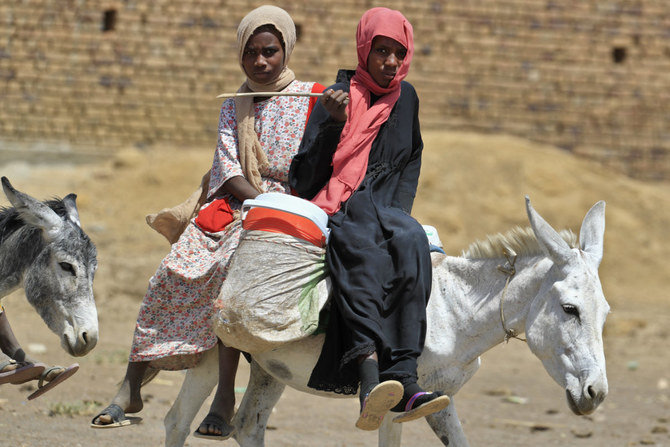
- Many anxious families have turned to social media, desperate for news of missing relatives, in many cases girls and women
- The online support project Mafqoud (Missing) lists the names of the disappeared together with their photos and a family member’s phone number
How climate change is exacerbating food insecurity, with dangerous consequences for import-reliant Middle East

- UN report show nations are falling well short of achieving the Sustainable Development Goal of eliminating hunger by 2030
- FAO expert warns that climate shocks could lead to more conflict in the region over limited access to water and resources
RIYADH: Global food insecurity is far worse than previously thought. That is the conclusion of the State of Food Security and Nutrition in the World 2024 report published this week by a coalition of UN entities, which found that efforts to tackle undernourishment had suffered serious setbacks.
As countries across the world fall significantly short of achieving the second UN Sustainable Development Goal of “zero hunger” by 2030, the report notes that climate change is increasingly recognized as a pivotal factor exacerbating hunger and food insecurity.

As a major food importer, the Middle East and North Africa region is considered especially vulnerable to climate-induced crop failures in source nations and the resulting imposition of protectionist tariffs and fluctuations in commodity prices.
“Climate change is a driver of food insecurity for the Middle East, where both the global shock and the local shock matter,” David Laborde, director of the Agrifood Economics and Policy Division at the Food and Agriculture Organization of the UN, told Arab News.
“Now, especially for the Middle East, I think that the global angle is important because the Middle East is importing a lot of food. Even if you don’t have a (climate) shock at home, if you don’t have a drought or flood at home — if it’s happened in Pakistan, if it’s happened in India, if it’s happened in Canada — the Middle East will feel it.”
Opinion
This section contains relevant reference points, placed in (Opinion field)
The State of Food Security and Nutrition in the World report has been compiled annually since 1999 by FAO, the International Fund for Agricultural Development, the UN Children’s Fund, the World Food Programme, and the World Health Organization to monitor global progress toward ending hunger.
During a recent event at the UN headquarters in New York, the report’s authors emphasized the urgent need for creative and fair solutions to address the financial shortfall for helping those nations experiencing severe hunger and malnutrition made worse by climate change.
In addition to climate change, the report found that factors like conflict and economic downturns are becoming increasingly frequent and severe, impacting the affordability of a healthy diet, unhealthy food environments, and inequality.
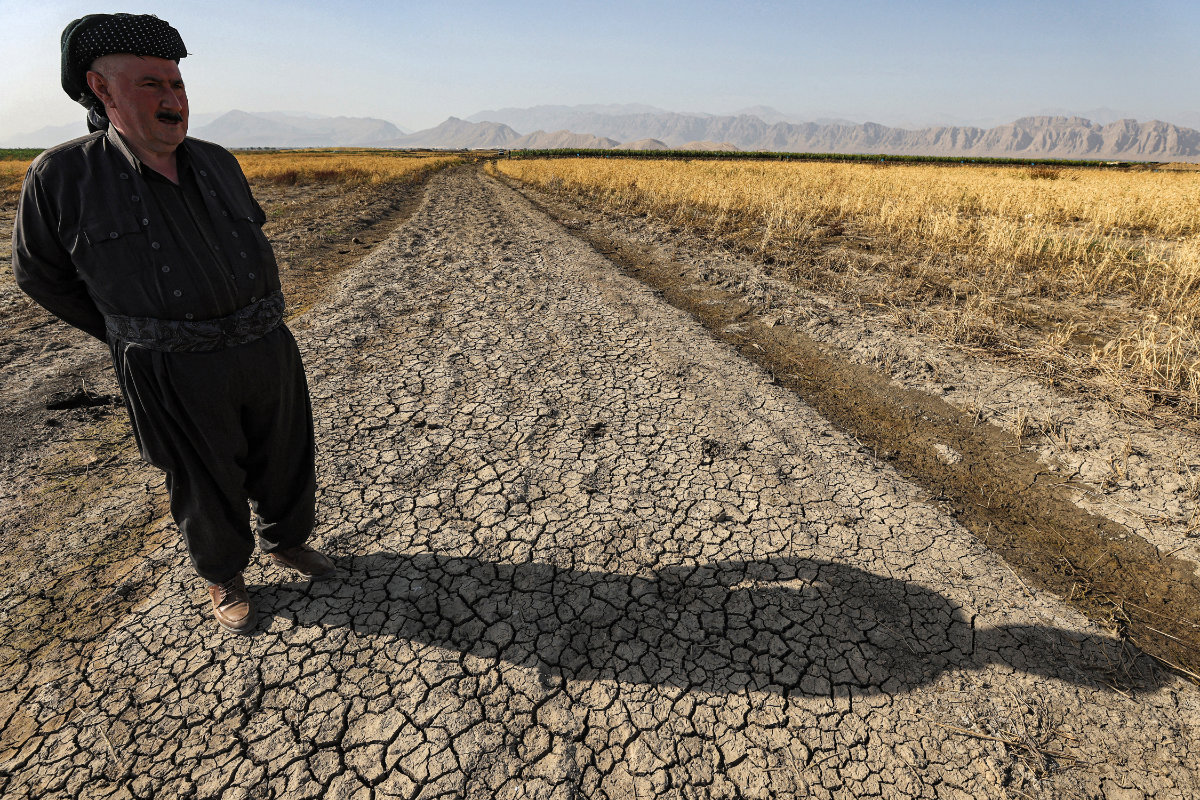
Indeed, food insecurity and malnutrition are intensifying due to persistent food price inflation, which has undermined economic progress globally.
“There is also an indirect effect that we should not neglect — how climate shock interacts with conflict,” said Laborde.
In North Africa, for example, negative climate shocks can lead to more conflict, “either because people start to compete for natural resources, access to water, or just because you may also have some people in your area that have nothing else to do,” he said.
“There are no jobs, they cannot work on their farm, and so they can join insurgencies or other elements.”
DID YOUKNOW?
Up to 757 million people endured hunger in 2023 — the equivalent of one in 11 worldwide and one in five in Africa.
Global prevalence of food insecurity has remained unchanged for three consecutive years, despite progress in Latin America.
There has been some improvement in the global prevalence of stunting and wasting among children under five.
In late 2021, G20 countries pledged to take $100 billion worth of unused Special Drawing Rights, held in the central banks of high-income countries and allocate them to middle- and low-income countries.
Since then, however, this pledged amount has fallen $13 billion short, with those countries with the worst economic conditions receiving less than 1 percent of this support.
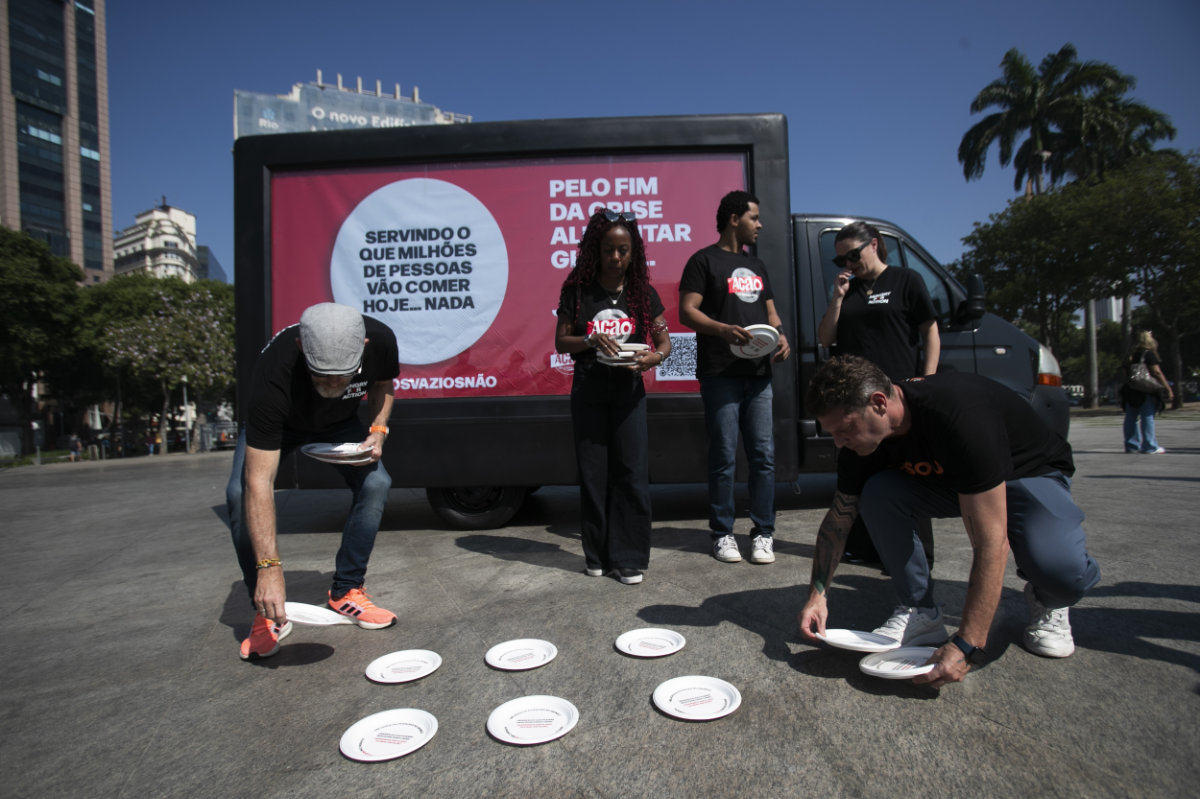
Saudi Arabia is one of the countries that has exceeded its 20 percent pledge, alongside Australia, Canada, China, France, and Japan, while others have failed to reach 10 percent or have ceased engagement altogether.
“Saudi Arabia is a very large state in the Middle East, so what they do is important, but also they have a financial capacity that many other countries don’t,” said Laborde.
“It can be through their SDRs. It can also be through their sovereign fund because where you invest matters and how you invest matters to make the world more sustainable. So, I will say yes, prioritizing investment in low- and middle-income countries on food and security and nutrition-related programs can be important.
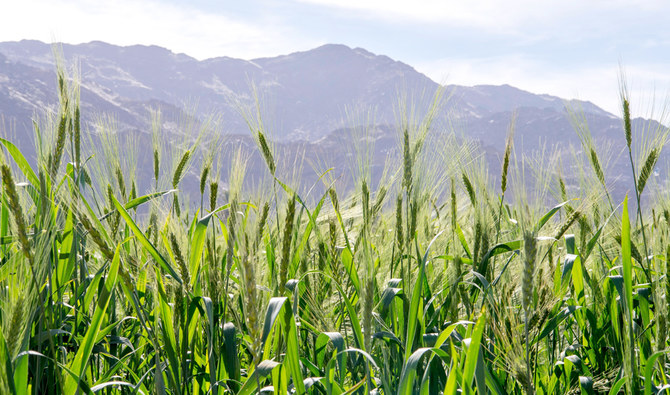
Although the prevalence of undernourishment in Saudi Arabia has fallen in recent years, the report shows that the rate of stunting in children has actually increased by 1.4 percent in the past 10 years.
There has also been an increase in the rates of overweight children, obesity, and anemia in women as the population continues to grow. In this sense, it is not so much a lack of food but a dearth of healthy eating habits.
“Saudi Arabia is a good example where I would say traditional hunger and the lack of food … become less and less a problem, but other forms of malnutrition become actually what is important,” said Laborde.

In 2023, some 2.33 billion people worldwide faced moderate or severe food insecurity, and one in 11 people faced hunger, made worse by various factors such as economic decline and climate change.
The affordability of healthy diets is also a critical issue, particularly in low-income countries where more than 71 percent of the population cannot afford adequate nutrition.
In countries like Saudi Arabia where overeating is a rising issue, Laborde suggests that proper investment in nutrition and health education as well as policy adaptation may be the way to go.
While the Kingdom continues to extend support to countries in crisis, including Palestine, Sudan, and Yemen, through its humanitarian arm KSrelief, these states continue to grapple with dire conditions. Gaza in particular has suffered as a result of the war with Israel.
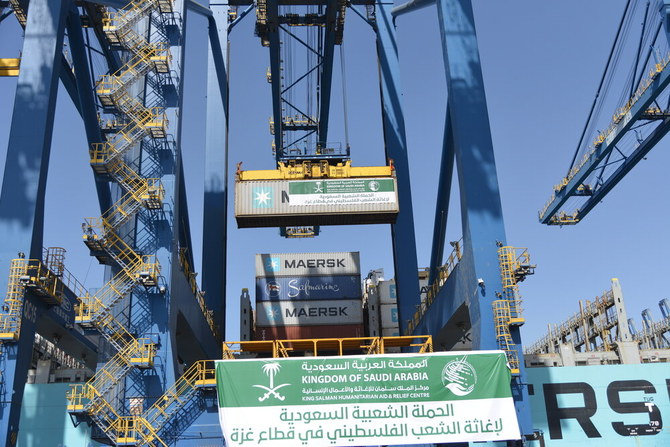
“Even before the beginning of the conflict, especially at the end of last year, the situation in Palestine was complicated, both in terms of agricultural system (and) density of population. There was already a problem of malnutrition,” said Laborde.
“Now, something that is true everywhere, in Sudan, in Yemen, in Palestine, when you start to add conflict and military operations, the population suffers a lot because you can actually destroy production. You destroy access to water. But people also cannot go to the grocery shop when the truck or the ship bringing food is disrupted.”
While Palestine and Sudan are the extreme cases, there are still approximately 733 million people worldwide facing hunger, marking a continuation of the high levels observed over the past three years.

“On the ground, we work with the World Food Programme (and) with other organizations, aimed at bringing food to the people in need in Palestine,” Laborde said of FAO’s work. “Before the conflict and after, we will also be working on rebuilding things that need to be rebuilt. But without peace, there are limited things we can do.”
FAO helps food-insecure nations by bringing better seeds, animals, technologies, and irrigation solutions to develop production systems, while also working to protect livestock from pests and disease by providing veterinary services and creating incentives for countries to adopt better policies.
The report’s projections for 2030 suggest that around 582 million people will continue to suffer from chronic undernourishment, half of them in Africa. This mirrors levels observed in 2015 when the SDGs were adopted, indicating a plateau in progress.
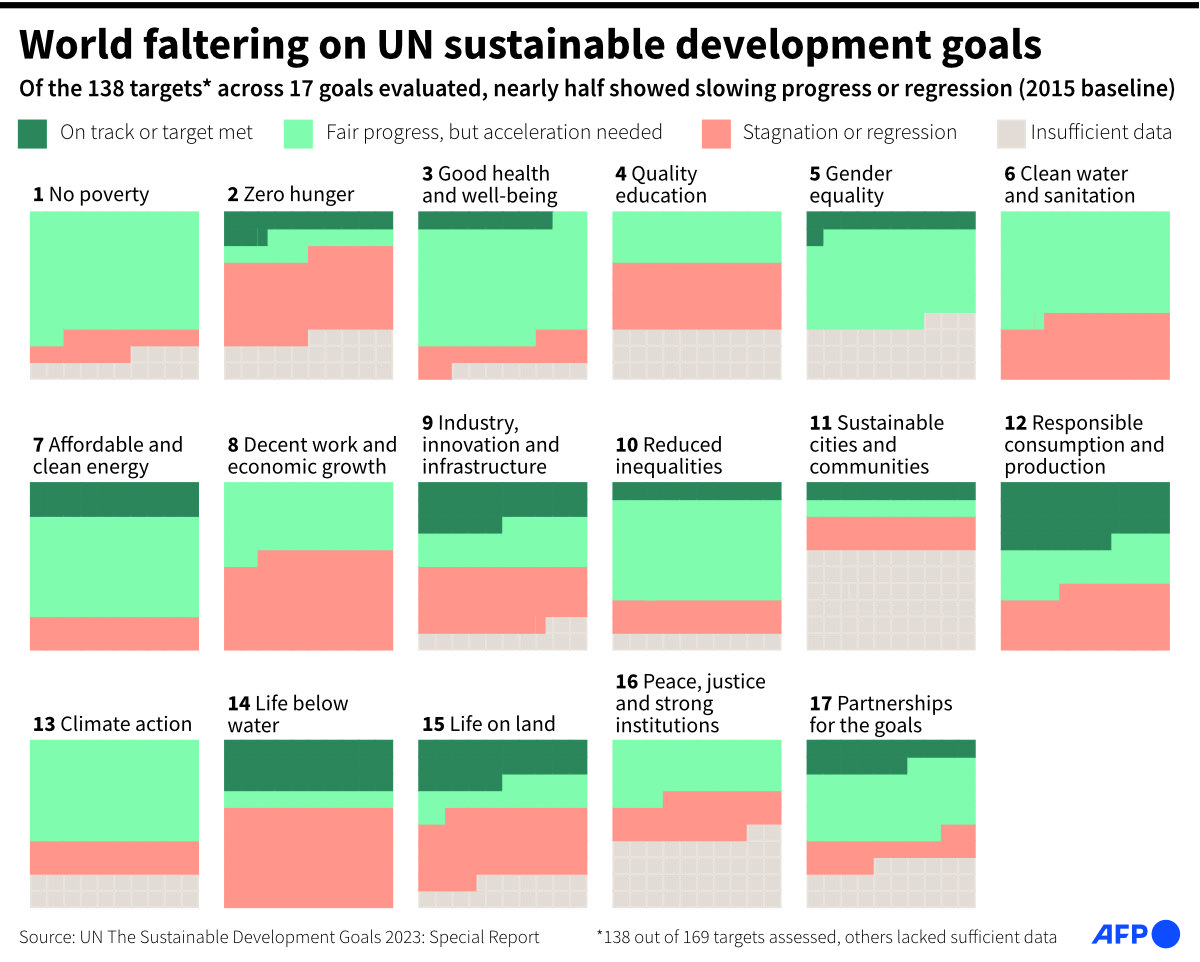
The report emphasizes the need to create better systems of financial distribution as per this year’s theme: “Financing to end hunger, food insecurity and all forms of malnutrition.”
“In 2022, there were a lot of headlines about global hunger, but today, this has more or less disappeared when the numbers and the people that are hungry have not disappeared,” said Laborde, referring to the detrimental impact of the war in Ukraine on world food prices.
“We have to say that we are not delivering on the promises that policymakers have made. The world today produces enough food, so it’s much more about how we distribute it, how we give access. It’s a man-made problem, and so it should be a man-made solution.”

Khan Yunis fighting displaces 180,000 Gazans in four days: UN

- Israel has killed at least 39,175 Palestinians in Gaza, according to the Hamas-run territory’s health ministry
KHAN YUNIS, Palestinian Territories: More than 180,000 Palestinians have fled fierce fighting around the southern Gaza city of Khan Yunis in four days, the United Nations said Friday, after an Israeli operation to extract captives’ bodies from the area.
Recent “intensified hostilities” in the Khan Yunis area, more than nine months into the Israel-Hamas war, have fueled “new waves of internal displacement across Gaza,” said the UN humanitarian agency, OCHA.
It said “about 182,000 people” have been displaced from central and eastern Khan Yunis between Monday and Thursday, and hundreds are “stranded in eastern Khan Yunis.”
The Israeli military on Monday ordered the evacuation of parts of the southern city, announcing its forces would “forcefully operate” there, including in an area previously declared a safe humanitarian zone.
On Wednesday, Israel said five bodies of captives seized during Hamas’s October 7 attack that triggered the war had been recovered from the area.
Israel’s military said on Friday that its forces had “eliminated approximately 100 terrorists” in the city this week.
Israel’s military chief, Lt. Gen. Herzi Halevi said the captives’ bodies were pulled from underground tunnels and walls in “a hidden place.”
Troops “were near those fallen bodies in the past, we did not know how to reach them” until this week, Halevi said in a statement.
Witnesses and rescuers said heavy battles continued around eastern Khan Yunis on Friday. The Nasser Hospital said 26 bodies were brought to the medical site.
The October 7 attack on southern Israel resulted in the deaths of 1,197 people, most of them civilians, according to an AFP tally based on official Israeli figures.
Out of 251 people taken hostage that day, 111 are still held in the Gaza Strip, including 39 the military says are dead.
Israel’s retaliatory offensive against Hamas has killed at least 39,175 Palestinians in Gaza, according to the Hamas-run territory’s health ministry.
According to UN figures, the vast majority of Gaza’s 2.4 million people have been displaced at least once by the fighting.
Gaza mediators, Israel spy chief to meet in Rome: Egypt media

- Cairo would also like to see a “complete (Israeli) withdrawal from the Rafah crossing” connecting Gaza to Egypt, the official added
CAIRO: Egyptian, Qatari and US mediators are to meet with Israeli negotiators in the Italian capital Sunday in the latest push for a Gaza truce, Egyptian state-linked media said.
“A four-way meeting between Egyptian officials and their American and Qatari counterparts, in the presence of Israel’s intelligence chief, will be held in Rome on Sunday to reach an agreement on a truce in Gaza,” Al-Qahera news, which has links to Egyptian intelligence, reported on Friday, citing a “senior official” who was not identified.
Egypt, along with Qatar and the United States, has been involved in months of mediation efforts aimed at ending the Israel-Hamas war raging in the Gaza Strip for more than nine months.
The proposed truce deal would be linked to the release of hostages held by Gaza militants in exchange for Palestinian prisoners held in Israel.
US news outlet Axios separately reported that CIA Director Bill Burns is expected to hold talks on the issue in Rome on Sunday with Israeli, Qatari and Egyptian officials.
The official quoted by Al-Qahera News said Egypt insists on “an immediate ceasefire” as part of the agreement, which should also “ensure the entry of humanitarian aid into Gaza” and “safeguard the freedom of movement” of civilians in the Palestinian territory.
Cairo would also like to see a “complete (Israeli) withdrawal from the Rafah crossing” connecting Gaza to Egypt, the official added.
Recent mediation efforts have focused on a framework which US President Joe Biden presented in late May, billing it an Israeli proposal.
On Thursday, Israeli Prime Minister Benjamin Netanyahu addressed Congress, pleading for continued US support, before meeting with Biden and Vice President Kamala Harris.
Harris, the presumptive Democratic nominee in the US presidential election later this year, said after the meeting she would not be “silent” on the suffering in Gaza and that it was time to end the “devastating” conflict.
The Gaza war began after Hamas’s October 7 attack on southern Israel resulted in the deaths of 1,197 people, most of them civilians, according to an AFP tally based on official Israeli figures.
Out of 251 people taken hostage that day, 111 are still held in the Gaza Strip, including 39 the military says are dead.
Israel launched a retaliatory campaign against Gaza rulers Hamas, killing at least 39,175 people in the territory, according to its health ministry, which does not give details of civilian and militant deaths.
Desperate for shelter, Gazans move to former prison

- Israel has killed 39,000 Palestinians according to health officials in Gaza
GAZA: After weeks of Israeli bombardment left them with nowhere else to go, hundreds of Palestinians have ended up in a former Gaza prison built to hold murderers and thieves.
Yasmeen Al-Dardasi said she and her family passed wounded people they were unable to help as they evacuated from a district in the southern city of Khan Younis toward its Central Correction and Rehabilitation Facility.
They spent a day under a tree before moving to the former prison, where they now live in a prayer room. It offers protection from the blistering sun but not much else.
Al-Dardasi’s husband has a damaged kidney and just one lung but no mattress or blanket.
“We are not settled here either,” said Al-Dardasi, who, like many Palestinians, fears she will be uprooted once again.
Israel has said it goes out of its way to protect civilians.
Palestinians, many of whom have been displaced several times, say nowhere is free of Israeli bombardment, which has reduced much of Gaza to rubble.
An Israeli airstrike killed at least 90 Palestinians in a designated humanitarian zone in the Al-Mawasi area on July 13, the territory’s Health Ministry said, in an attack that Israel said targeted Hamas’ elusive military chief, Mohammed Deif.
On Thursday, Gaza’s Health Ministry said Israeli military strikes on areas in eastern Khan Younis had killed 14 people.
Entire neighborhoods have been flattened in one of the most densely populated places in the world, where poverty and unemployment have long been widespread.
According to the UN, nine in ten people across Gaza are now internally displaced.
Israeli soldiers told Saria Abu Mustafa and her family that they should flee for safety as tanks were on their way, she said. The family had no time to change and left in prayer clothes.
After sleeping outside on sandy ground, they, too, found refuge in the prison, among piles of rubble and gaping holes in buildings from the battles that were fought there. Inmates had been released long before Israel attacked.
“We didn’t take anything with us. We came here on foot, with children walking with us,” she said, adding that many women had five or six children and that water was hard to find.
She held her niece, who was born during the conflict, which killed her father and brothers.
More than 39,000 Palestinians have been killed in Israel’s air and ground offensive since Oct. 7, Palestinian health officials say.
Hana Al-Sayed Abu Mustafa arrived at the prison after being displaced six times.
If Egyptian, US and Qatari mediators fail to secure a ceasefire they have long said is close, she and other Palestinians may be on the move once again.
“Where should we go? All the places that we go to are dangerous,” she said.
Algerian president to face two challengers in September election

- Abdelaali Hassani and Youssef Aouchiche will stand against 78-year-old Abdelmadjid Tebboune
ALGIERS: Algerian President Abdelmadjid Tebboune, accused of leading a crackdown on dissent since mass protests in 2019, is to face two challengers in a Sept. 7 election, organizers said.
Abdelaali Hassani of the Movement of Society for Peace and Youssef Aouchiche of the center-left Socialist Forces Front are the two candidates who will stand against the 78-year-old incumbent.
The other 13 hopefuls all had their candidacies rejected after failing to muster the required number of signatures of support.
Tebboune, elected in 2019 with 58 percent of the vote following months of pro-democracy protests, announced in March that the presidential election would be held on Sept. 7.
BACKGROUND
Abdelmadjid Tebboune, elected in 2019 with 58% of the vote following months of pro-democracy protests, announced in March that the presidential election would be held on Sept. 7.
A former prime minister under longtime president Abdelaziz Bouteflika, who was ousted during the 2019 protests, Tebboune has overseen a crackdown on the Hirak movement that led the protests.
Taking advantage of the restrictions on gatherings required during the COVID-19 pandemic, Tebboune’s administration banned demonstrations by Hirak and stepped up prosecutions of dissident activists, journalists, and academics.
In February, human rights watchdog Amnesty International said that five years after the pro-democracy protests erupted, Algerian authorities were still restricting the right to freedom of expression and peaceful assembly.
Also this week, Algeria expressed “great regret and strong denunciation” about the French government’s decision to recognize an autonomy plan for the Western Sahara region “within Moroccan sovereignty.”
Algeria was informed of the decision by France in recent days, an Algerian Foreign Ministry statement added.
The ministry also said Algeria would draw all the consequences from the decision and hold the French government completely responsible.
The French Foreign Ministry did not immediately comment on the Algerian statement.
Algeria’s position on the Western Sahara conflict is to implement a UN plan, which includes a self-determination referendum.
Algeria considers Morocco’s presence in the Sahara an occupation. Morocco considers Western Sahara its own, but an Algeria-backed independence movement, the Polisario Front, demands a sovereign state.
Morocco took over most of Western Sahara in 1975 from colonial Spain.
That started a guerrilla war with the Sahrawi people’s Polisario Front, which says the desert territory in the northwest of Africa belongs to it.
The UN brokered a ceasefire in 1991 and sent in a mission to help organize a referendum on the territory’s future, but the sides have been deadlocked since.



